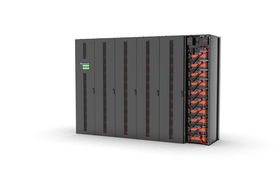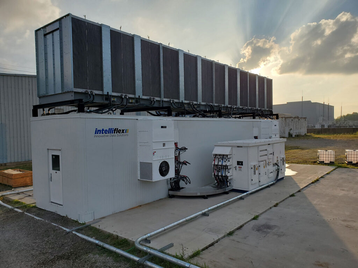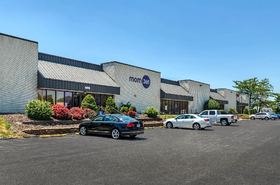Cryptomining data center firm Core Scientific is suing Canadian hardware vendor CEC Corp over a defective data center module.
First reported by Block Tribune, Core Scientific is seeking $4.7 million for failure to deliver the agreed module on time or install the pod.
The lawsuit, filed in April in with the United States District Court for the Western District of Texas, says the modules arrived late, didn't work as expected, and CEC failed to support the company.
According to the complaint, Core had an agreement with CES Corporation to purchase a pre-fabricated modular data center for more than $3 million to expand capacity at the mining firm’s Calvert City campus in Kentucky.
CES Corporation reportedly delivered the modular data center months later than the committed delivery date of March 2022. The company allegedly failed to deploy and install the modular data center as agreed, and management servers were said to be missing.
After Core installed the module itself, it was reportedly “plagued by fundamental and extensive defects” to the heating, ventilation, and air conditioning units, with defects in electrical systems, pumps, fuses, and spill prevention features. Software and control systems also faced persistent errors. Issues were not fixed, despite coming under the module’s warranty.
Alberta-based CEC Corp provides immersion cooling tanks, cooling systems, and PUDs. Its Intelliflex offering provides up to 6MW of cooling for as many as 1,152 cryptomining machines at a reported PUE of 1.02.
Founded in 2017, Core Scientific operates cryptomining data center campuses in Texas, North Dakota, Kentucky, Georgia, and North Carolina. Combined, Core Scientific says its facilities have a live supply of 745MW and 372MW of pipeline supply. The company hosts its own mining hardware as well as customer hardware.
The Calvert site in Kentucky opened in 2019 and has around 100MW of capacity.
Core Scientific has been involved in a number of lawsuits, including one last year that saw the company reach a $45 million settlement with mining firm Celsius over the latter’s unpaid rent leading to Core powering down hardware it was hosting. It also faced a class action lawsuit last year regarding its own 2022 bankruptcy.
Core announced its quarterly results this month. The company posted total revenues of $179.3 million, compared to $120.7 million for the same period last year. Net income was $210.7 million, compared to a net loss of $400,000 for the same period in 2023. Operating income was $55.2 million, versus $7.6 million in 2023. Adjusted EBITDA was $88 million, compared to $40.3 million for last year.
In other recent crypto news:
– Cryptomining firm Soluna has launched a new GPU cloud service. The company this month announced Soluna Cloud in collaboration with a ‘leading global enterprise GPU-Server original equipment manufacturer (OEM) and Artificial Intelligence (AI) infrastructure-as-a-service provider.’
Soluna said it would work with the unnamed strategic partner to deliver an initial cluster of NVIDIA H100 GPUs and supercomputers for large-scale AI projects.
Though it has a number of its own data center sites in operation or development, Soluna said it would begin offering its services by leveraging the partner’s data centers. Details weren't provided.
Soluna currently has two sites in Texas and Kentucky totaling 75MW – having exited two other sites in Kentucky and Washington– with two more planned in the future.
– Holding company Ault Alliance, Inc. announced its wholly-owned data center and cryptomine subsidiary, Sentinum, has signed its first non-mining colocation/hosting agreement.
Details weren’t provided, but Ault Alliance CEO William B. Horne said the customer’s power requirements only represent a “small amount” of its Michigan data center’s total available capacity. The company is reportedly in discussions with other potential clients, which have expressed an interest in acquiring a “significant amount” of the currently available additional capacity.
Set on 34.5 acres, the 617,000-square-foot building has a current capacity of 30MW, with potential to expand to 300 MW.
The company said it is currently in the process of reallocating deployed infrastructure to support High-Performance Computing and Artificial Intelligence use cases, and is moving a portion of its Bitcoin mining operations to the company’s Montana sites.
More in Critical Power
-

-

Sponsored Narada: Power you can rely on
-





